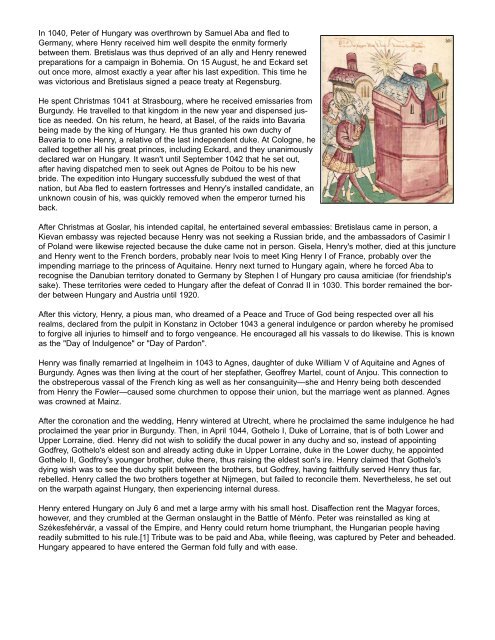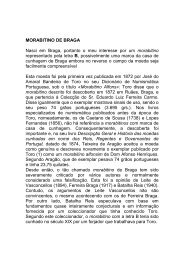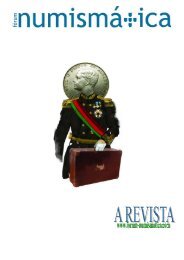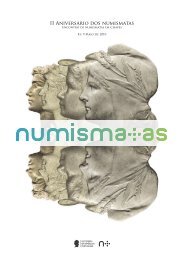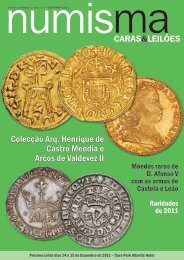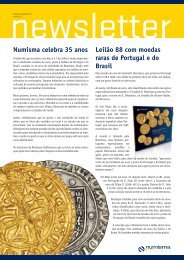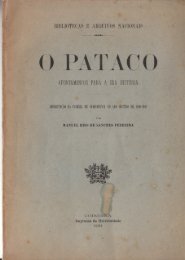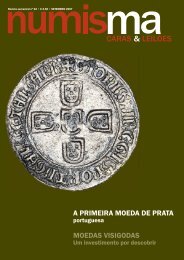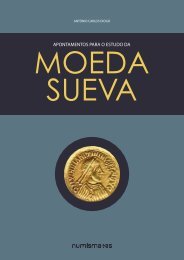You also want an ePaper? Increase the reach of your titles
YUMPU automatically turns print PDFs into web optimized ePapers that Google loves.
In 1040, Peter <strong>of</strong> Hungary was overthrown by Samuel Aba and fled to<br />
Germany, where Henry received him well despite the enmity formerly<br />
between them. Bretislaus was thus deprived <strong>of</strong> an ally and Henry renewed<br />
preparations for a campaign in Bohemia. On 15 August, he and Eckard set<br />
out once more, almost exactly a year after his last expedition. This time he<br />
was victorious and Bretislaus signed a peace treaty at Regensburg.<br />
He spent Christmas 1041 at Strasbourg, where he received emissaries from<br />
Burgundy. He travelled to that kingdom in the new year and dispensed justice<br />
as needed. On his return, he heard, at Basel, <strong>of</strong> the raids into <strong>Bavaria</strong><br />
being made by the king <strong>of</strong> Hungary. He thus granted his own duchy <strong>of</strong><br />
<strong>Bavaria</strong> to one Henry, a relative <strong>of</strong> the last independent duke. At Cologne, he<br />
called together all his great princes, including Eckard, and they unanimously<br />
declared war on Hungary. It wasn't until September 1042 that he set out,<br />
after having dispatched men to seek out Agnes de Poitou to be his new<br />
bride. The expedition into Hungary successfully subdued the west <strong>of</strong> that<br />
nation, but Aba fled to eastern fortresses and Henry's installed candidate, an<br />
unknown cousin <strong>of</strong> his, was quickly removed when the emperor turned his<br />
back.<br />
After Christmas at Goslar, his intended capital, he entertained several embassies: Bretislaus came in person, a<br />
Kievan embassy was rejected because Henry was not seeking a Russian bride, and the ambassadors <strong>of</strong> Casimir I<br />
<strong>of</strong> Poland were likewise rejected because the duke came not in person. Gisela, Henry's mother, died at this juncture<br />
and Henry went to the French borders, probably near Ivois to meet King Henry I <strong>of</strong> France, probably over the<br />
impending marriage to the princess <strong>of</strong> Aquitaine. Henry next turned to Hungary again, where he forced Aba to<br />
recognise the Danubian territory donated to Germany by Stephen I <strong>of</strong> Hungary pro causa amiticiae (for friendship's<br />
sake). These territories were ceded to Hungary after the defeat <strong>of</strong> Conrad II in 1030. This border remained the border<br />
between Hungary and Austria until 1920.<br />
After this victory, Henry, a pious man, who dreamed <strong>of</strong> a Peace and Truce <strong>of</strong> God being respected over all his<br />
realms, declared from the pulpit in Konstanz in October 1043 a general indulgence or pardon whereby he promised<br />
to forgive all injuries to himself and to forgo vengeance. He encouraged all his vassals to do likewise. This is known<br />
as the "Day <strong>of</strong> Indulgence" or "Day <strong>of</strong> Pardon".<br />
Henry was finally remarried at Ingelheim in 1043 to Agnes, daughter <strong>of</strong> duke William V <strong>of</strong> Aquitaine and Agnes <strong>of</strong><br />
Burgundy. Agnes was then living at the court <strong>of</strong> her stepfather, Ge<strong>of</strong>frey Martel, count <strong>of</strong> Anjou. This connection to<br />
the obstreperous vassal <strong>of</strong> the French king as well as her consanguinity—she and Henry being both descended<br />
from Henry the Fowler—caused some churchmen to oppose their union, but the marriage went as planned. Agnes<br />
was crowned at Mainz.<br />
After the coronation and the wedding, Henry wintered at Utrecht, where he proclaimed the same indulgence he had<br />
proclaimed the year prior in Burgundy. Then, in April 1044, Gothelo I, Duke <strong>of</strong> Lorraine, that is <strong>of</strong> both Lower and<br />
Upper Lorraine, died. Henry did not wish to solidify the ducal power in any duchy and so, instead <strong>of</strong> appointing<br />
Godfrey, Gothelo's eldest son and already acting duke in Upper Lorraine, duke in the Lower duchy, he appointed<br />
Gothelo II, Godfrey's younger brother, duke there, thus raising the eldest son's ire. Henry claimed that Gothelo's<br />
dying wish was to see the duchy split between the brothers, but Godfrey, having faithfully served Henry thus far,<br />
rebelled. Henry called the two brothers together at Nijmegen, but failed to reconcile them. Nevertheless, he set out<br />
on the warpath against Hungary, then experiencing internal duress.<br />
Henry entered Hungary on July 6 and met a large army with his small host. Disaffection rent the Magyar forces,<br />
however, and they crumbled at the German onslaught in the Battle <strong>of</strong> Ménfo. Peter was reinstalled as king at<br />
Székesfehérvár, a vassal <strong>of</strong> the Empire, and Henry could return home triumphant, the Hungarian people having<br />
readily submitted to his rule.[1] Tribute was to be paid and Aba, while fleeing, was captured by Peter and beheaded.<br />
Hungary appeared to have entered the German fold fully and with ease.


